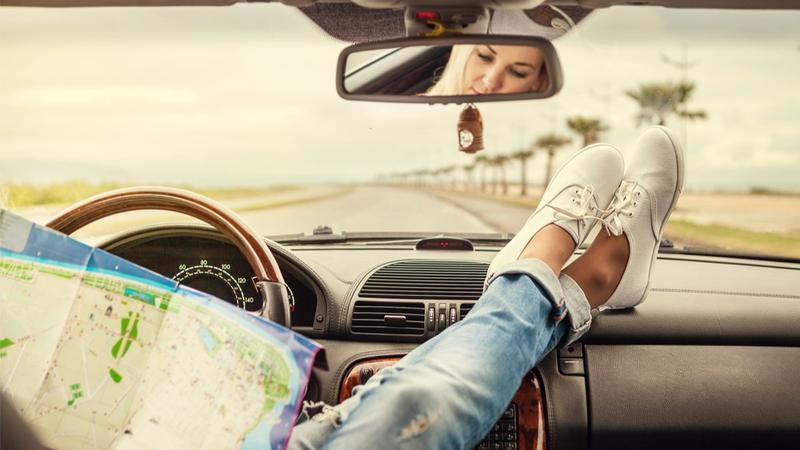Road trips are a tradition; they’re a fun and exciting way to see the country and reach your destination. Many people choose to drive these days rather than fly due to the cost of airfare, but some simply prefer to hit the open road. Whether you are taking a short weekend trip or heading out on a longer adventure, there are a few important things to keep in mind, and to keep in your car.
Preparing For a Road Trip
Ensuring a good road trip begins before you back out of the driveway. Before you hit the road, it’s important to make sure your car is ready to roll. The last thing you want is to be stranded out on the highway somewhere, so make sure that you are caught up on all scheduled maintenance for your car, including oil changes and brakes.
It’s also a good idea to check your tires. Make sure they are in good condition and that the air pressure inside them is at the appropriate level. Improperly filled tires can be a danger on the road, and they can also negatively impact your gas consumption, adding to the cost of your trip.
Packing Safety Equipment
Before your luggage goes into the car, pack a few other vital things. A first aid kit is a must for any road trip. You should also check to make sure you have a useable spare tire and a jack in the car.
A roadside emergency kit is a vital tool for any road trip. Load up some drinking water and some non-perishable snacks. You’ll also need road flares or reflectors in case of a breakdown or accident. For a summer road trip be sure to pack some sunscreen in case you are stranded out in the sun for a long period of time. Increase the amount of drinking water you pack when the weather is hot.
Checking Your Insurance
On a road trip your insurance is important, and not only because you can’t legally be on the road without it. The more time you spend on the road the higher the odds that something will go wrong. Whether that’s an accident or a breakdown, you want to be certain that your insurance is ready to help.
Most insurance companies offer roadside assistance at a low rate, so if you don’t already have it on your policy and don’t have assistance elsewhere, consider adding it before you go. It will provide assistance for flat tires, towing, and even should you lock your keys in the car. If you have no roadside assistance, the cost to take care of these things could be very high.
Driving With Caution
Although driving carefully is always good advice every driver should follow, on a road trip there are some added dangers you should be cautious about. Be aware of driver fatigue; switch off drivers if you can on long trips. If there is only one driver, stop frequently to stretch. When you feel tired or sleepy, pull off the road as soon as possible and find a place to rest. Sleepy drivers are just as dangerous as inebriated ones, and driving when you are too tired can result in an accident.
Long highway road trips can take you through construction zones. Always slow down and obey any traffic control signs or flaggers on the highway. Traffic violations in a construction zone often come with higher fines, and are seen as more serious offences – this means you could also wind up with a higher insurance premium.
If your road trip takes place over a holiday weekend, be alert for drivers who may have been drinking. Drinking and driving is an increased danger during long weekends, so watch for any signs of erratic driving. Of course, you should also be sure to avoid getting behind the wheel yourself if you have been drinking.
Make sure you arrive safely at your destination and are ready for any possible problems along the way, so that you can enjoy your road trip. Pack emergency gear, check up on your car and on your car insurance, and use all due caution when you hit the road.
